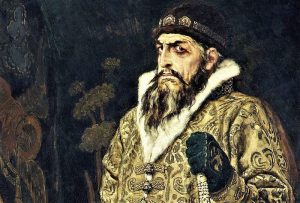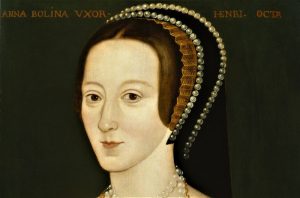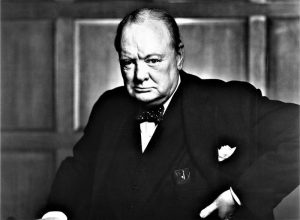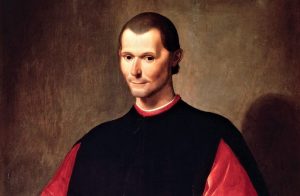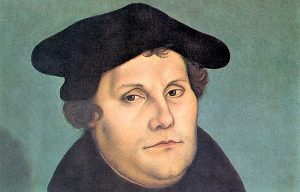Genghis Khan
His real name was Temuyin, which means "the best steel". The great Genghis is the name he received after claiming the throne as the Great Khan of the Mongols in 1206. Mongol warrior and conqueror who unified nomadic tribes from an ethnic clan in northern Asia, founding the first Mongol empire, the largest contiguous empire in the history of the world. Under his leadership as Genghis Khan, the Mongols began a conquest campaign that extended their rule over a vast territory beyond the Mongolian steppes, from the Pacific Ocean to Eastern Europe and from Siberian to Mesopotamia.
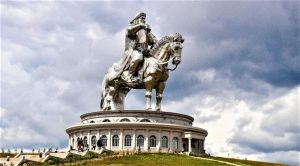
- Born: 1162
- Birthplace: Dulun-Boldaq, Mongolia
- Died: 18/08/1227
- Place of death: Yinchuan, China
Who was Genghis Khan?
He was a leader, strategist, warrior and Mongol conqueror, who managed to become emperor of the world's largest unified empire, the Mongol Empire, born in April in 1162 and one of his most famous quotes was: "A single arrow can be easily broken, but many arrows are indestructible".
What he did
He unified nomadic tribes from an ethnic clan in northern Asia, founding the first Mongol empire, the largest unified empire in world history.
Biography of Genghis Khan
Presumably born on April 16, 1162, Genghis Khan was born in an aristocratic environment, in a society at the end of the late Middle Ages and the beginning of the feudal age.
He was a descendant of Qabul Kan of the Borjigin clan, the Temuyin clan (Genghis Khan) had a high respect and prestige for his rank, because the Mongols were not the most powerful peoples in the steppe, did not have a very broad power. However, the favorable situation of Temuyin and his clan was interrupted by Yesugei’s death, his father, who was poisoned by the Tartars, followed by a consequent abandonment by the clans who supported his father, this is because at the time, the successor was not more than ten years old.
From that moment on, Temuyin’s family, that is, his mother and his six siblings, were forced to live in indigent conditions, living from fishing and agricultural harvesting, being constantly subdued by rival clans, especially the Taichi’ ut clan, which aspired to the vacancy due to Yesugei’s death. In his youth, he carried out several activities, he began to acquire fidelities and to link bonds of other young individuals, that in many occasions, had lived the same circumstances that he did, the first one that joined to his ideal was Boghurtschi, who rode with him in his adolescence helping him to obtain from the bandits Tai-eschutos the eight horses, the fortune of which he enjoyed in that moment.
A character of considerable importance and his second most important link was Jamukha, a young man of noble blood who took the oath of anda or “sworn brother”. The position of the nobleman, Jamukha, greatly helped Temuyin to the rapid rise of various positions in the race for power.
More important than Jamukha’s support was that of a former ally of his father, who had been his “sworn brother” Togrhul, khan of the Keraites, who accepted him as a leader in their ranks. His position was now more favorable, coupled with the personal attraction of Temuyin, gave him the voluntary adhesion of even more warriors to their ranks.
An event occurs that solidifies Temuyin’s power a little more, as his wife Borte is kidnapped by the Merkita clan, but Temuyin was already in a position to request military support and Jamukha joins his clan in an offensive, which the Merkita clan is defeated and the position of the future Genghis Khan is solidified.
Mongolian tribal unification
The beginning of his campaign to unify the Mongol tribes was based on the conquest of the confederations of the Tartars, Keraites, Merkites and Naimans, thus etiologically born the term “Mongol”.
Unification campaigns
- 1185: Merkitas attack Kiutes, Temuyin tribe, Borte kidnapping.
- 1188: Defeat the Taieschutos.
- 1197: Initiates conflict with the Keraites.
- 1201: Becomes enemy of Jamukha (former sworn brother).
- 1203: Beat the Naimanosy Keraitas.
- 1204: The most powerful clans proclaim Temuyin king of Mongolia, but others refuse to recognize him. War begins against Jamukha.
- 1206: Subdues the remaining Merkits and annihilates the Tartars. Jamukha dies. Genghis Khan is proclaimed king of all Mongolia without major rivals.
Mongol Empire Expansion
Thanks to the potential of the confederations under the command of Genghis Khan, he gradually developed an empire of more than 100 million people, which he called the Mongol Empire. It stretched from Korea to Hungary and much of the Middle East.
Death of Genghis Khan
On August 18, 1227, one of the great emperors and conquerors of Mongolian history, Genghis Khan, a leader who focused on the unification and spread of Mongol culture in every corner of Asia, failed. His last order was not to blur his death until all the garrisons were in place and all the princes were already located in their respective camps.
Tomb
Today, this is a mystery that is still not answered, represents one of the greatest challenges by archaeologists, which is to locate and confirm the existence of the tomb of Genghis Khan and with it the realization of samples and features of a king of universal history.
Parents
He was the son of Yesugei and Hoelun, the grandson of Qabul, a nobleman who had harassed the borders of Yurchen China and chosen by them the title of Kan.
Relationships
Genghis Khan was a very libertine man and had at his disposal hundreds of women. It was rumored that after each conflict or conquest campaign in which he was successful, he drained all his impotence and slept with one of his women to vent.
The relevant one of his relationships was his first wife, called Borte. She was his companion in the reign and friend until the end.
Descendants
Today, Genghis Khan is considered one of the most fertile men in the world and one of the grandparents of humanity, with more than 16 million descendants on the planet.
His closest legacy was his children:
- Checheikhen
- Kuoliejia
- Chagatai
- Jochi
Importance
The cultural legacy left by the Mongolian Empire is the unification of the greatest transculturation of universal history, freedom of worship, tolerance among clans, ethnicities and tribes. And what continues to evolve the culture of the different traditions of an empire throughout history.
Genghis Khan phrases
Genghis Khan throughout his 40 years has advised and written famous phrases, among them are:
- “Have the courage of the cunning that stops anger and waits for the proper moment to unleash it”.
- “It is not enough for me to triumph, others must fail”.
- “In the space of seven years I have triumphed by completing a great work and unifying the whole world in one empire”.
- “Let us drink from the cup of destruction”.
- “A single arrow can be easily broken, but many arrows are indestructible.
- “I am God’s punishment, if you had not committed great sins, God would not have sent a punishment like me upon you”.
- “I had no place to hide from thunder, so I no longer fear it”.
- “Have one mind and one faith, then you can conquer your enemies and live a long and happy life”.
Presence in popular culture
Movies
- Cengiz Ham (2007) Director: Sergey Bodrov
- By the will of Genghis Khan (2009) Director: Andrei Borissov
- An End to Killing (2013) Director: Ping Wang
- Genghis Khan (1965) Director: Henry Levin.
Books
- The son of Genghis Khan (2013)
- Genghis Khan and the beginning of the modern world (2004)
- Genghis Khan life, death and resurrection (2006)
Games
- Has its own conquest campaign in the strategy game for Microsoft “Age of Empires II” (1999)
- Genghis Khan II: Clan of the gray Wolf (2004)
How to cite this article?
Briceño V., Gabriela. (2019). Genghis Khan. Recovered on 3 May, 2025, de Euston96: https://www.euston96.com/en/genghis-khan/




